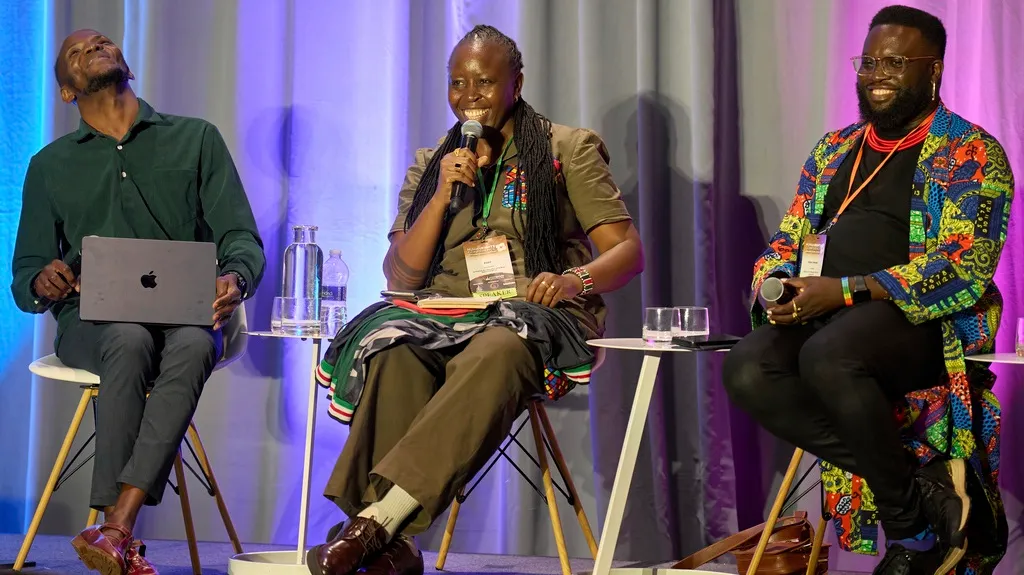September 11, 2013
Gay Marriage Stirs Little Public Outcry in NM
Jason St. Amand READ TIME: 4 MIN.
Lynn Ellins stunned New Mexico last month when the county clerk decided to begin issuing marriage licenses to same-sex couples. But even he was shocked by the lack of public outrage or protest to his decision, which set off a chain reaction that has for all practical purposes made gay marriage legal in the state.
The only crowds that gathered outside his Dona Ana County office were gay couples wanting to marry. The state's top politicians stayed neutral. New Mexico's three Catholic bishops said it was a matter for lawmakers. And an evangelical mega-church in the state's largest city was mum.
"I have gotten some fairly nasty religious-related telephone message," Ellins said. "But generally speaking, I am surprised by the relatively muted response from those who clearly disagree."
Experts and gay rights advocates say the relative lack of an uproar is a sign of how quickly public opinion has turned on the issue.
"If this had happened five years ago, there would have been a public outcry," said Andrew Cherlin, an expert on sociology of families and public policy at Johns Hopkins University. "If it had happened two to three years ago, there would have been public concern ... It's as if the dam broke quickly."
Gay marriage opponents, however, say residents of the mostly rural state are too busy taking care of their families to worry about organized protests. Instead, they are looking to their leaders to take action against the "lawbreakers," said state Sen. Sen. William Sharer, a Farmington Republican, who is leading a group of opponents suing to block Ellins.
"The reality is the other side built an army and trained an army before they broke the law and our side wasn't ready to fight," he said.
Perhaps one of the biggest turns has been in the Catholic Church, whose bishops historically have issued strong condemnations of same-sex marriage laws. About 25 percentage of the state's population is Catholic, according to the U.S. Conference of Catholic Bishops.
New Mexico's three bishops issued a statement reiterating their belief that marriage is a unique institution between a man and a woman, saying Ellins' action was "a significant matter that affects society at large and as such is one that is best decided through the legislative branch of government."
Andrew Chesnut, a Catholic scholar at Virginia Commonwealth University, said he believes the bishops were following the lead of Pope Francis, who despite fervent opposition to same-sex marriage while archbishop in Argentina has now "been mostly mute on this subject."
The last time the state was embroiled in the gay marriage issue was in 2004, when then-Sandoval County Clerk Victoria Dunlap began to issue marriage licenses to same-sex couples. The state's attorney general at the time, a Democrat, ordered her to stop and she didn't run for re-election.
New Mexico is just one of two states without laws explicitly legalizing or banning same-sex marriage.
Because of that Ellins, a lawyer, said he began looking closely at state laws after several lawsuits were filed this year seeking to force county clerks in Santa Fe and the state's largest county, Bernalillo, to issue the licenses. Seeing that the legal process was doomed to drag on, he said, "I said, 'Enough is enough. It's time to move forward.'"
Unlike 2004, the Democratic attorney general made no attempt to intervene this time. When asked for comment, Republican Gov. Susana Martinez said it is a matter that should be decided by voters.
A week later, a state district judge, in Albuquerque ruled same-sex marriage was legal. Shortly thereafter, several other county clerks also began issuing licenses. At the request of county clerks, the Supreme Court has scheduled a hearing next month to decide if same-sex marriage is legal under the state's constitution.
One billboard opposing same-sex marriage was spotted recently at an evangelical church in Espanola. But the Catholic Church has said little beyond one statement after Ellins began issuing licenses.
Chestnut said the response of church officials in New Mexico isn't all that surprising, given that places around the world with sizeable Catholic populations - such as countries in Latin America - have led the way on gay marriage. Likewise, he said, Hispanics in the U.S. tend to be more approving of same-sex marriage than the overall population.
Allen Sanchez, spokesman for the New Mexico Conference of Catholic Bishops, denied a shift or softening in the church's position. And he pointed to the pope's recent call for compassion and tolerance for gays.
The difference to the response and lack of public action in New Mexico, he said, "is the difference between legislative and legal strategy. Had this been up for a legislative vote, you would have seen a much different process."


